Subscriber Benefit
As a subscriber you can listen to articles at work, in the car, or while you work out. Subscribe Now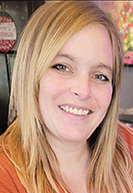
For many across the state, being given a chance to connect with people in similar situations and to work with a supportive team is life changing. It certainly was for Breanna Shope.
Shope had that experience when she participated in the family recovery court program in Vigo County with Judge Sarah Mullican.
“Everyone’s really supportive,” Shope said. “Even when I didn’t have gas to get to work or gas to make my appointments, Judge Mullican made sure that she would give us gas cards to make sure we could get to our appointments, get to where we needed to go.”
Shope now works as a case manager at a rehabilitation center, helping others who are in situations like the one she once was in.
“I feel like it helps me in my sobriety, helping other people learn about recovery and like, give them an outlook,” Shope said. “Like, ‘I was in your shoes before and it’s doable.’ And I love working with people in recovery.”
Shope completed the program in one year, graduating this past February. She said that while she completed it in one year, it was not an easy process, and not everyone moves that quickly. She is still in contact with the team that helped her, and sometimes she goes back to court to help them.
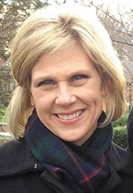
Family recovery courts are much like other problem-solving courts. But along with becoming sober, the parent-participants get to keep custody of their children throughout the process.
According to the Indiana Supreme Court’s 2021-2022 Annual Report, there were 22 family recovery courts in operation or planning throughout the state.
Vigo Superior Court
Vigo County’s family recovery court began in 2020, with Mullican presiding.
Like all family recovery courts in Indiana, the Terre Haute-based program has three phases.
During the first phase, participants come to court every week and must be in contact with case managers every day while submitting to drug screenings every few days. In phase two, the participants move to coming in every other week. In phase three, it’s once a month.
The Vigo County court has capped its program at 15 participants at a time, so it has a waitlist. So far, there have been 42 participants total and 10 graduates, including Shope.
Mullican, judge of Vigo Superior Court Division III/Vigo Circuit Court, said what’s been different for her as a judge is the collaborative effort the family recovery court takes.
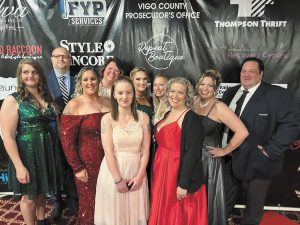
“I’m really proud of the team dynamic we have, and they work above and beyond,” she said.
The team includes a therapist, service providers, a peer recovery coach and case managers to support the participants.
“Many of our participants come to us and just don’t have anybody they could rely on, don’t have any support system,” Mullican said.
Allen Superior Court
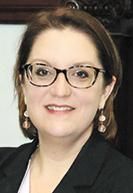
Across the state in Allen County, the local family recovery court began in 2019 as the eighth in the state, with Magistrate Judge Sherry Hartzler presiding.
Since the Allen County program started, it has had 68 participants, 41 graduates and 100 kids involved. They see an average of 20 to 30 participants at a time.
“Stopping somebody from using is just really scratching the surface. There’s a lot of issues that you have to deal with in terms of keeping somebody healthy,” Hartzler said. “I’ve learned that substance use has so many moving parts to it that having it in this kind of a setting and a problem-solving court is much easier to manage and help people, as opposed to maybe the regular child-in-need-of-services track where they’re going to come back every six months.
“… It’s been a total paradigm shift for me,” she added.
The case managers stay in contact with many of the graduates, who send pictures of their children in programs, at Christmas or new babies being born, Hartzler said. Some also return to family recovery court after graduation to provide informal peer support.
“That’s critical as a great part of the program to have that kind of ongoing context so people can see, ‘There’s somebody that’s been where I am, and look where they’re at now. I can do it, too,’” Hartzler said.
She added that one of the barriers she often sees with participants is overcoming the stigma around addiction.
“Overcoming that and getting people to trust you, because it’s a different experience than they may have experienced in the past that they’re not going to open up,” Hartzler said.
Wayne Superior Court
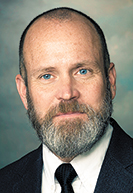
Judge Darrin Dolehanty is the presiding judge of Wayne County’s family recovery court. The Richmond-based program received its certification in 2021 after having to wait out the pandemic.
Dolehanty said his county likes to keep the program small, with groups ranging from three to eight participants.
“We’re probably in the position where we could grow a little bit larger,” he said, “but we don’t want to get so big that we don’t have time to do it right.”
During the court sessions, Dolehanty talks to each participant for five to seven minutes, asking them how they are, how their kids are and what they’ve been up to lately.
“Court session is supposed to take between five and seven minutes per person. You’re not supposed to go longer than that,” he explained. “That is an evidence-based range of time that you’re supposed to spend with people. If you go less than that, they get you get less bang for your buck. If you go over that, you start losing the benefit of it.”
He added that the time goes by quickly, so he has to be strategic about what he’s asking the participants. He also said the court sessions are just the tip of the iceberg, because there is so much going on behind the scenes.
For example, Wayne County also has a reward system known as “court bucks,” with participants collecting court bucks for things like engaging in positive social events or going to the library with their children. The participants can then use those court bucks on toys, diapers or baby wipes, or even on bigger things like a toaster.
“That’s just one small way we try to encourage and incentivize positive behaviors,” Dolehanty said.
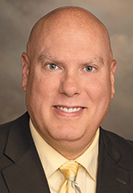
Family law attorney J. Clayton Miller, a Richmond-based attorney, said not all of his clients choose to participate in the program, but many do and he encourages them to do so. He added that he thinks some of the success of the program comes from the fact that it’s something participants choose to do, rather than being ordered to do.
“If somebody won’t admit to himself or herself that they have a problem, they’re less inclined to want to do it, versus somebody that maybe they’ve been out of other treatments and so they’re just looking for another option,” Miller said.
Some participants who move on to the next phases of the program still continue coming every week because they get empowered by it, Dolehanty said.
“They just keep showing up because they find it so beneficial,” he said.•
Please enable JavaScript to view this content.
